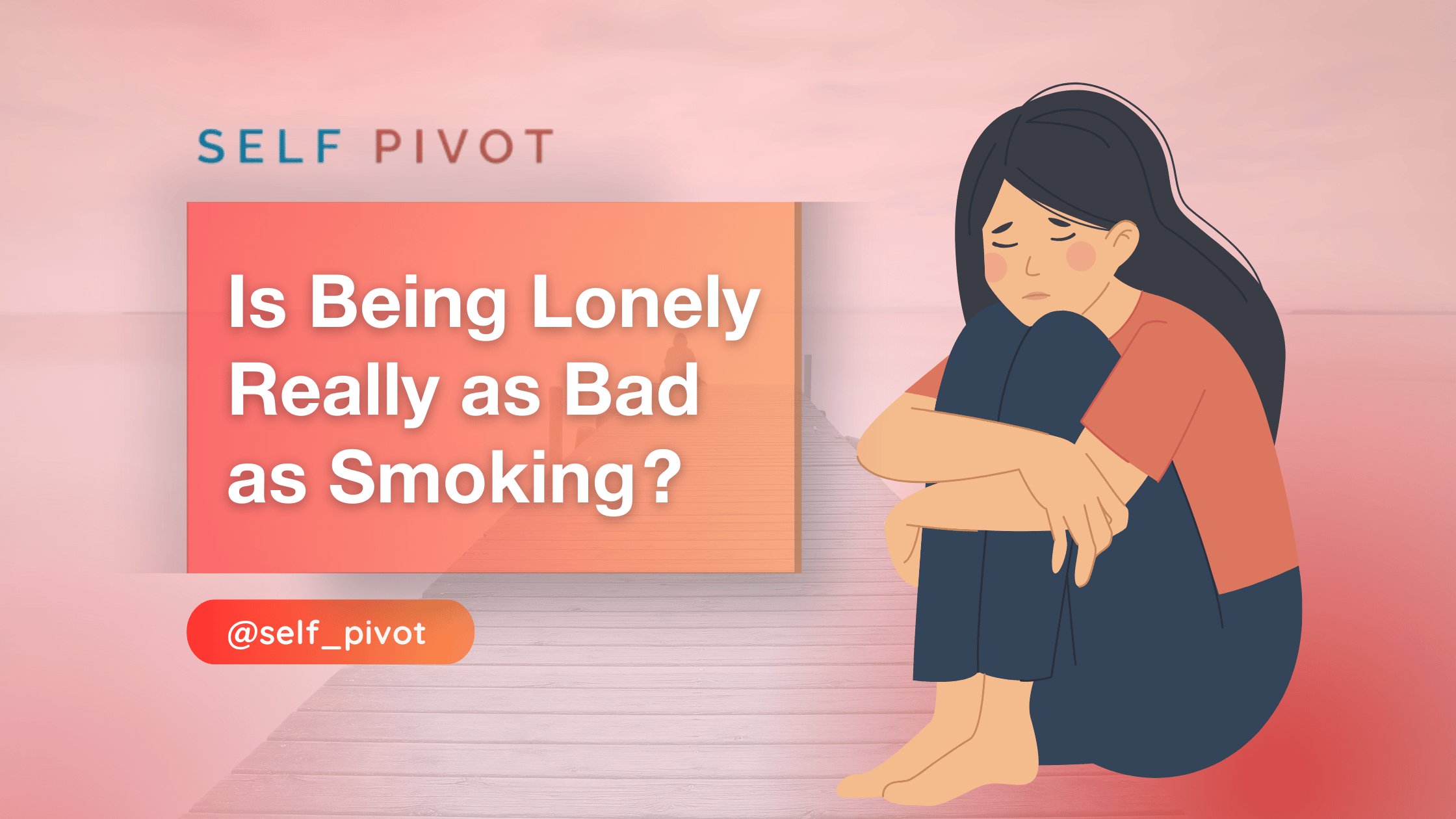Is being lonely really as bad as smoking
Being alone can be as harmful as smoking, so it is advisable to take action. Consider Online Mental health Consultations to get assistance and improve your mental health

Is it true people have started believing that loneliness is as bad as smoking for health?
Yes. By this strong statement, we can have an idea of how dangerously aloneness can affect someone’s mental and physical health.
As a mental health therapist, it’s critical to identify the roots and effects of loneliness for proper treatment for the clients. In this blog, we will learn the comparison of loneliness to smoking and learn about the social, psychological, and physical impacts of isolation.
Before comparing Loneliness and smoking, we have to discover the meaning of loneliness. For some people, these feelings of isolation have ended their happiness and deadly affected their mental health for a constant time.
Let’s understand the Concept of Loneliness:
Loneliness is not just being alone, in this state, a person feels alone apart from being in crowds of a million people. Being alone can be the choice but loneliness is a feeling where people lose themselves with the feeling of being unwanted.
Yes. It can happen to anyone it has nothing to do with age, gender, or background.
The causes of Loneliness can be life changes, relationship problems, being socially isolated, or losing their closest one.
Discover the surprising truth about Loneliness and its Impact on your Health, and learn how it might compare to smoking in our latest blog
How it Physically Affects?
Research shows that loneliness can have harmful consequences on physical health. Continued isolation leads to increased risks of chronic sicknesses for instance stroke, heart disease, and high blood pressure.
Meta-analysis of ‘Julianne Holt-Lunstad’ and her collogues has stated that aloneness increases the risk of death by 26%, as compared to the dangers caused by smoking and obesity. This study shows how dangerous loneliness can be a significant health concern for the public.
Loneliness affects physical health due to stress and on the other hand; Chronic seclusion can cause anxiety as it raises levels of cortisol, the stress hormone. The constant rise in cortisol levels can weaken the immune system, cause inflammation, and start health problems.
It says that isolation has been associated with unhealthy behaviors for example poor diet, no exercise, and substance abuse, which can further invite physical health issues.
Understanding the Psychological Impacts of Loneliness:
According to the Mental Health Point of view, Solitude can be dangerous. It is strongly associated with depression, low self-esteem, and anxiety. Keeping disconnected from others can make you see worthless and negative about yourself. In severe cases, loneliness can Create suicidal thoughts in someone.
Mental Health effects can be found in cycle form. This empty feeling of Loneliness made people keep themselves more distant from others, avoiding involving themselves in social activities or not being allowed to meet new people. Due to this cycle, it makes it hard for them to get rid of loneliness and build meaningful relationships
Comparing Loneliness and Smoking:
The comparison of smoking and Loneliness can be exaggerated but both are major public Risk factors. Smoking can cause harmful diseases like lung cancer, heart disease, and respiratory ailments, and it can lead to millions of deaths each year.
Further Comparison of smoking and loneliness we can conclude how serious loneliness can be for health and it shows the significance of pointing out this issue.
This comparison shows how severe concern this can be in the future. The big problem needs big solutions. Quitting the smoking habit requires knowing some important things like awareness of health laws, guidance, and ways to help people. Dealing with this aloneness requires a couple of strategies, like helping people, connecting with them, Social Involvement, and support for mental health.
What is Loneliness:
Understanding the complicated nature of aloneness and implementing some plans or strategies in terms of building a meaningful connection can help reduce the isolation effects on human beings. Let’s take a look at the considerable approaches to loneliness-reducing therapy:
Healing approaches:
While thinking of changing the harmful thoughts that are peeping out of the lonely person therapist should apply Cognitive-behavioral therapy to the client. Mental Health Therapy can also help in providing a place for clients to learn and address primary issues that contribute to their feelings of isolation.
Social Involvement:
In this approach, the therapist Encourages the clients to engage in social happenings according to their interests. This could involve joining clubs and engaging the patient in group activities. Building new social networks can help progress in isolation.
Endorsing Self-Kindness:
Another approach is to develop self-kindness within the client’s mind. This is a helpful way of self-acceptance and leads to lessening the aloneness feeling. In this case, training in self-awareness practices can be useful in reducing self-deprecation and nurturing a more positive self-understanding.
Use of Technology Sometimes, Technology can make us feel distant or isolated however it can also be a useful tool for connection. Encouraging clients to use social media platforms, telling them to connect on video calls, and connecting with online communities to build and maintain relationships, especially when physical closeness is impossible.
Building Strong Connection with Community Resources: Connect the clients with community resources for instance- senior centers, support groups, or local events can be beneficial in terms of reduction of loneliness.
For instance: senior centers, support groups, or local events. Connection with the Community can provide a client with a feeling of complete involvement and a clear sense of purpose.
The Part of Society:
Addressing the isolation awareness issue is not a duty of a single person but of a whole society.
Loneliness must be categorized as a public health concern by healthcare providers, Politicians, and community leaders. They should take a step forward to reduce its effects.
This way they can create more wide-ranging communities. Whether it would be designing public spaces that help people interact socially or to execute policies that assist work-life balance and unity within the family.
Conclusion:
While the comparison between loneliness and smoking may seem startling, it serves to emphasize the profound impact of being alone on health. As a mental health therapist, understanding and addressing loneliness is crucial for helping complete our well-being.
After the psychological, physical, and social dimensions analysis of aloneness, we can support our clients in developing meaningful contacts and leading improved, more fulfilling lives.
Though we have compared loneliness with smoking, The effects of Loneliness seem more surprising than smoking. Loneliness has more impact on health. As a mental health therapist, it is important to understand and address loneliness is critical to promote
Being alone can be as harmful as smoking, so it is advisable to take action. Consider Online Mental health Consultations to get assistance and improve your mental health












